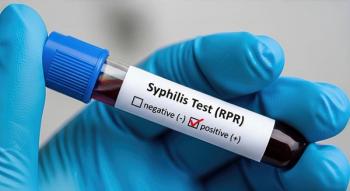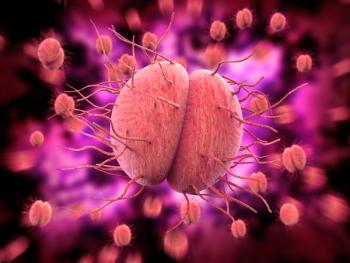
Study finds lack of testing for gonorrhea, chlamydia during pregnancy
Adherence to guideline-based laboratory testing and treatment of chlamydia and gonorrhea in pregnant women has been found to be suboptimal in the United States, indicating the potential for negative effects on newborn and maternal health.
Adherence to guideline-based laboratory testing and treatment of chlamydia and gonorrhea in pregnant women has been found to be suboptimal in the United States, indicating the potential for negative effects on newborn and maternal health, according to a recently published study in the Journal of Lower Genital Tract Disease.1
Researchers from Quest Diagnostics and the University of Alabama sought to evaluate adherence to national recommendations for chlamydia and gonorrhea testing during pregnancy. This evaluation also included tests for persistence/potential reinfection at time of delivery and cure/clearance.1
From January 2010 through July 2022, investigators identified 4,077,212 pregnancies across the United States. Of the pregnancies that were tested for
The study also showed that initial tests occurred during the first trimester of approximately 88% of pregnancies. Of pregnancies that initially tested positive for chlamydia, 71% were retested; with 15.8% being retested within 4 weeks and 37.3% in 8 weeks or more. Retesting timelines were similar for gonorrhea.2
In pregnant individuals who initially tested positive in early/mid-pregnancy, over one-third did not have late pregnancy retesting. Further, patients who initially tested negative and later retested positive, these individuals were approximately 50% likely to have the last available result be positive.2
Additionally, for patients who initially tested positive and were retested, 6.8% and 4% tested were positive for chlamydia and gonorrhea, respectively, during their last test prior to estimated delivery. There was also no follow-up negative test before delivery for 35.1% and 36.9% for patients infected with chlamydia or gonorrhea, respectively.2 This suggests patients may not have been treated or cured or were treated/cured but later reinfected before delivery.1
"Our study adds to a troubling body of evidence highlighting inconsistent quality in maternal and child healthcare in the United States," said Damian P. Alagia, MD, coauthor of the study and medical director of Women's Health at Quest Diagnostics. "Our analysis shows that improved adherence to existing recommendations, harmonization of guidelines across agencies, and even updated recommendations for STI testing will be critical to ensuring the mothers and babies in the United States receive medically appropriate testing and treatment."1
Moreover, the study authors stated that reinfections, or unsuccessfully treated initial infections, may lead to an increased number of deliveries while women are positive for 1 or more STIs, which can impact both newborn and maternal health.1
The authors concluded that current guidelines are inconsistent and provided various recommendations for improvement.
For example, the CDC recommends women be retested for cure at 4 weeks of pregnancy. Meanwhile, the United States Preventive Services Task Force (USPSTF) recommends retesting before 3 weeks. Also, guidelines do not recommend screening women aged 26 years and older unless there are risk factors, including multiple partners. This guideline was based on a 1998 study when women were married at a young age compared to today. The authors suggested that guidelines be revised to recommend that, regardless of risk, all women under the age of 25 years be screened.1
“Adherence to current recommendations is suboptimal and may not be adequate to reduce disease burden,” wrote the study’s authors. “Professional societies and practice plans should work to encourage better adherence to existing guidelines to protect the health of women and their newborns. We propose recommendations that may be helpful in reducing disease burden.”2
References:
1. Quest Diagnostics. Pregnant Women Undertested for STIs, Finds Quest Diagnostics Health Trends Study of Over 4 Million Pregnancies. PR Newswire. August 12, 2024. Accessed August 15, 2024. https://www.prnewswire.com/news-releases/pregnant-women-undertested-for-stis-finds-quest-diagnostics-health-trends-study-of-over-4-million-pregnancies-302219894.html?tc=eml_cleartime
2. Kaufman HW, Alagia DP, Van K, Van Der Pol B. Chlamydia and Gonorrhea Testing in Pregnancy: Time to Improve Adherence and Update Recommendations. J Low Genit Tract Dis. Published online July 26, 2024. doi:10.1097/LGT.0000000000000829
Newsletter
Get the latest clinical updates, case studies, and expert commentary in obstetric and gynecologic care. Sign up now to stay informed.









